Thirty-something things you might want to know about Taipei before moving there
- By Robyn Lee
- Jul 7, 2015
- Comments
As a foreign student, I found adapting to life in Taipei to be fairly easy. Oh, hello, reliable metro system with clear announcements and signage in English. Hey there, endless supply of cheap eats. Wattup, low crime rates. Thank you, 7-Eleven on every other block, open 24 hours every day, instantly fulfilling my every wish and desire, our eternal bond sealed with a blood oath that I shall chant while dragging you with me into the afterlife.
Easy pease!
But there are plenty of things I wouldn't have minded knowing before moving there. Where do I put the toilet paper? How do I garbage? Wait, I don't have to tip anyone? What's up with all these cafe cats? OMG STAMPS EVERYWHERE, OMG OMGGGGUUHH.
So to help out those of you who plan to travel to or live in Taipei, and to give non-visitors a little glimpse of the fabulous* Taipei life you're not living, here are some random tips from a total non-expert's point of view about living in Taipei—local customs, habits, and resources you might not be familiar with, written from the perspective of an American who lived most of her adult life in New York City. People moving to other parts of Taiwan may also find useful information here, although I don't know how local regulations differ in other cities. If you have corrections or more suggestions, please let me know!
* During my last few months in Taipei, I got into the habit of pointing at things and passionately exclaiming, "FABULOUS TAIWAN," a hyperbolic sentiment I stole from a student photo exhibit of the same name. Sometimes the things were truly fabulous. Sometimes the things were mundane. Perhaps through my unbridled enthusiasm and/or penchant for yelling dumb shit, I degraded the word to a wisp of its former self, but I'd rather say everything in Taipei could be deemed fabulous.
The List So Far
- You have to throw out used toilet paper instead of flush it (most of the time).
- Garbage disposal is complicated.
- You shouldn't drink water straight from the tap (but public drinking water dispensers are pretty common).
- Get used to squat toilets.
- Toilet paper may be located outside the stall.
- Toilet paper for home use is mostly in tissue-like sheets, not rolls.
- Everyday food is cheap.
- Many restaurants provide free water and/or tea and/or soup.
- Where are the napkins? In a dispenser on the wall behind you. Maybe.
- Tipping is not required.
- You usually pay for your bill at the counter or right after you order.
- Many restaurants close between lunch and dinner. Monday is the typical day of rest.
- Don't throw out your receipts; they're lottery tickets.
- Use Pleco for all your Chinese dictionary needs.
- Use Line for all your communication needs.
- The rain is sometimes acidic.
- You should buy a cute Taiwanese umbrella.
- Taipei is pretty bike-friendly.
- Don't have a bike? Use YouBike.
- The MRT stops around midnight.
- Need a restroom? An outlet to recharge your phone? THE MRT HAS IT ALL!
- Souvenir rubber stamps are a thing here. A great thing.
- You can customize your EasyCard with stickers.
- You can drink alcohol in public.
- Taiwan is earthquake-prone.
- Cafe/coffee shop culture is huuuuge.
- It's fairly common for cafes to have a resident cat or two.
- Summer is brain-meltingly hot.
- Aaaand winter is kind of cold.
- Mosquitoes prey on new blood, THEY WILL CONSUME YOU.
- Your voice might be too loud.
- Movie theaters have assigned seating.
- There's a 24-hour bookstore.
- "Chao fan" (fried rice) is slang for sex.
- Learn how to do tally marks the Taiwanese way.
- It's the year 104.
You have to throw out used toilet paper instead of flush it (most of the time).
"WHAT IF YOU TAKE A GIANT, WET DUMP? DO YOU JUST END UP WITH A TRASH CAN FULL OF POOPY TOILET PAPER?"
If you're a sheltered American like I am, used to a luxurious life of flushing toilet paper with abandon, this might be your first question. It was one of mine. Yes, I mentally yelled it in all-caps.
A better first question is a simple, "Why?" Like in many other parts of the non-TP-flushing world, Taipei's plumbing isn't totally up to snuff. I've been told old buildings in Taipei, which seems to be most of them, have outdated plumbing that's susceptible to clogging. Or maybe not? I don't know. "Old buildings" in my experience includes just about every cafe and restaurant I've been to, the restrooms in my school (National Taiwan Normal University, aka NTNU, aka Shida), and most apartments. But if you're in a more modern building—a hotel, department store, airport, etc.—you are more likely, but not definitely, in flush-friendly territory.
Sometimes restrooms have signs telling you to flush or not to flush; sometimes they don't. Sometimes the signs are in English; sometimes they're not. You just have to be minimally observant. Is there a waste basket right next to the toilet full of used toilet paper? Then that's where your toilet paper goes.
So, back to the trash-can-full-of-poopy-TP question. What do you do? Thanks to my toilet's built-in bidet, I mostly avoided this problem. (Seriously, why aren't we all using Japanese toilets? They're awesome. I don't want a new car. I don't want a new house. I want a new Japanese toilet.) For the bidet-less who cannot easily wash the poop/urine molecules off their butts, you just...deal with it. Or eat more fiber. I used my bidet for Number 1 and Number 2. Even with a wastebasket full of used toilet paper festering in my bathroom for days on end, my bathroom didn't smell like a sewer. Or I acclimated to it.
"Why don't you just take out your garbage more often?"
That's a valid question. And I have a valid answer. Come this way, my dear friend.
Garbage disposal is complicated.
Taiwanderland has a good summary of Taipei's garbage disposal and recycling system.
Here's my experience.
It's not that complicated or else average people wouldn't do it, but it's more complicated than in the US or anywhere else I've ever been. If you live in a building with a landlord or janitor who handles the trash for you, then sit back, put your feet up, take your sweet time puffing a cigar while stroking a permanently scowling cat or whatever it is you do when you don't have to sort your trash. For the rest of us plebs, read on.
First off, you need to buy the right bags for your garbage. Garbage trucks only accept government-approved, individually numbered garbage bags as a sort of garbage tax, while recyclables can go in any ol' bag. You can buy the special bags at convenience stores and supermarkets in different sizes (they're not on display; you have to ask the cashier for them). They're not expensive, but they're more expensive than regular non-government-approved trash bags. I think the bags are a great idea—they force you to recycle the shit out of everything. And I did. Paper take-out cup of bubble tea sealed with a circle of plastic film? Separate the film from the cup, rinse, divide between the paper recyclables and the soft plastic recyclables. Empty plastic baggie tainted with lu wei residue? Rinse it out, store with the other to-be-recycled plastic bags. Take-out paper biangdang box? Rinse it, store with the other to-be-recycled paper.

- My friend Charlotte helped me sort my garbage and recycling. GARBAGE FRIENDS 4 LIFE. We should've made commemorative T-shirts.
You need to separate your recyclables into soft plastic (like plastic bags and similarly crinkle-able plastic), hard plastic (bottles and such), paper (whether it's an old magazine or a used, not heavily soiled biandang box), glass, aluminum, and styrofoam. You can also separate your food waste. Soft plastic, styrofoam, glass, aluminum, and food waste get picked up every garbage day; paper and hard plastic alternate. I think you can also recycling electronics and other special material any day. You don't need special bags for recycling. Once I got used to sorting my trash, I realized most of my trash is recyclable and that back home in the US I'm super wasteful.
So, you've sorted your garbage! Congratulations! Now you just have to carry it all to your closest pick up spot at the designated time and dump them in the correct trucks and bins.
...Yeeeaaah. This is one reason I didn't take out the garbage more often, besides that I also want to wait until I can fill up a garbage bag. You take out the garbage to a designated pick-up spot when the city says you can. If you happen to live near one of the garbage drop-off points that's open from morning until night, you can free yourself from the shackles of the garbage truck schedule. Garbage is picked up every day except Sundays and Wednesdays, and my closest garbage pick-up ran from about 5:50 p.m. to 6 p.m., a time when I was often not at home. Yeah, the nerve of the Department of Environmental Protection, not conforming to my exceedingly frivolous schedule.
Information in English about garbage collection routes and drop-off locations is available online in the form of spreadsheets that might make you go, "Why isn't this a map [pokes spreadsheet] why isn't this a map [pokes spreadsheet] why isn't this a map." (If there is a map with this information, please tell me.) The easiest way to figure out when and where your closest garbage pick-up spot is to ask a neighbor, if your landlord or roommates haven't already told you.
Or you can listen for the dulcet melody of the garbage truck song signaling the truck's impending arrival. Taipei's garbage trucks weave a tapestry of monophonic brilliance in the form of Beethoven's "Für Elise" or Tekla Bądarzewska-Baranowska's "A Maiden's Prayer". And thus 19th century classical music has found its place in the modern, exciting world of trash disposal.
As for the "dump them in the correct trucks and bins," that's because besides the garbage truck there are also two recycling trucks. One truck has two sacks dangling from the side. One sack is for baggy plastic, the other is for styrofoamy things. You just dump your stuff into the welcoming sack-holes. For paper or hard plastic, you have to bring it to the back of the other truck and give it to the dude in the truck or leave it on the truck on the designated paper or plastic day. For the non-recyclable garbage, you toss your garbage bag into the back of the garbage truck . Food waste goes into the blue barrels near the garbage truck. Dump the food waste in one barrel, then toss your empty food waste bag in the back of the garbage truck.
AND YOU DID IT, WOOHOO!
It looks complicated at first, but you get used to it quickly.
In more garbage-related advice, there aren't many public trash cans on the streets of Taipei compared to other major cities I've been to. I assume this is to prevent people from throwing out their home garbage in the public bins. Despite that, there isn't much litter; most people feel responsible for their own trash. If you have a bit of trash while walking about and can't find a trash can, you can always throw it out at a trash can in an MRT station. Parks tend to have a trash can somewhere as well.
You can't drink water straight from the tap.
I mean, you can—you won't die (right away)—but you're supposed to boil it before drinking. Conveniently, every floor of my school has multiple water fountains designed for filling water bottles and cups, as opposed to water fountains that attempt to shoot a parabolic dribble of water into your slovenly gaping maw. Many tourist spots in Taipei, like museums and cultural parks, have these kinds of water dispensers. Be sure to always carry a bottle with you—Taipei's heat and humidity in the summer will drain you of your bodily fluids. Most, if not every, MRT station also has a water fountain of the dribbly sort, not the kind pictured above.
Get used to squat toilets.
You'll mostly come across western-style toilets, aka full-bum-on-seat-contact, but you'll encounter squat toilets as well, and it's worth getting used to them. In my school every restroom had one squatty potty, and that stall was most likely to be free if there was a line snaking out the door. Get out of my way, gals—I'm gunna squat and pee at the same time. The farther you are from civilization, the more likely you'll have to use a squat toilet. Long-distance trains may or may not have western-style toilets depending on what kind of train you're on. I've only encountered squat toilets on trains. Yes, that's a fun one—squatting and peeing and wobbling at the same time.
Toilet paper may be located outside the stall, if at all.
Sometimes public restrooms only have one communal toilet paper dispenser for all the stalls. If you enter a stall and there's no toilet paper dispenser inside, go back out near the entrance of the restroom and see if there's a toilet paper dispenser. ...Or maybe there's no toilet paper at all. This doesn't happen much unless you're farther afield, but you're best off always carrying tissue packs on your person just in case.
Toilet paper for home use is mostly in tissue-like sheets, not rolls.
I rather like this kind of toilet paper. It's not just toilet paper! It's also tissues! And napkins! Three-in-one! Packages come with all kinds of designs to entice people who would otherwise not care about what toilet tissue brand they're buying. I've almost—almost—bought Miffy-adorned tissue packs because, hey, why not look at a cute, round, expressionless bunny while I'm on the crapper, until I remembered cute bunnies do nothing to aid wiping my butt and I'd rather buy whatever's cheapest. ...Having said that, I did once buy tissue packs solely because the tissues were printed with drawings of little puppies. They were definitely worth whatever small fortune I paid for them.
Everyday food is cheap.
Most people know food in Taiwan is cheap, but they might now know how cheap. So to give you a point of reference, I'll describe some of my most common food expenses in Taipei. I ate out 99 percent of the time; most of my meals cost in the range of NT$80-150, or US$3-5, but there are cheaper options out there. I lived by Shida Night Market, and within a five-minute walk I could get a shui jian bao for NT$13 (three made for a hefty meal), gua bao for NT$50, a cong you bing burrito-like thing for NT$65, or dumplings for NT$5 a piece. A large cup of bubble tea starts at around NT$35, about US$1. Soft serve from a convenience store or supermarket usually ranges between NT$30-40. If you're strapped for cash, stick to Taiwanese food. Western food and most other non-Asian food cost more, closer to what you'd pay in the US. On more special occasions I might spend more than NT$300, about US$10, for a meal. I'm sure there are plenty of pricey, higher-end food options in Taipei, but I didn't try many of them.
The smaller price tag usually comes with a smaller portion size. For someone my size—an average Taiwanese woman—most of the portion sizes in Taipei are just right. I much prefer them to portion sizes in the US. If you're a tall dude with high metabolism, you might have to eat five meals a day.
Many restaurants (usually the cheaper, casual sort) provide free water and/or tea and/or soup.
Not a mind-blowing fact, but it's a nice feature, so look out for water/tea dispensers or tub-sized soup kettles in restaurants. You just refill your own cup whenever you want. No need to wait for someone to do it for you. One of my favorite local Thai restaurants had free-flowin' sweet iced tea (as well as cold water and hot tea), which was partially why I went there so often. KEEP THE SUGAR FLOWING.
Where are the napkins? In a dispenser on the wall behind you. Maybe.
Sometimes restaurants will have a few communal napkin/tissue dispensers stuck to the wall instead of placing dispensers on every table. The tissues tend to be these postcard-sized wisps that you need three of to make a functional napkin. Still better than those shitty napkins that feel like wax paper and whose main function is to smear instead of absorb. You know what I'm talking about? I have feelings about those napkins.
Tipping is not required.
In restaurants, taxis, hair salons, and other places I can't think of right now, tipping is not expected/required like in the US. I suppose you could try to leave a tip at a restaurant if you want, but I don't know anyone in Taipei who does. I've seen maybe three tip jars the whole time I've been here. At first I felt kind of uncomfortable not tipping, but I got over that quickly. Because I'm cheap. (Although now that I'm back in the US, I feel kind of guilty and wondered if I should've tipped more. The only person I tipped was my hairdresser, because she's awesome.) Nicer restaurants often have a tipping policy of adding an automatic 10 percent to your bill. Any restaurant with this policy will clearly state it on their menu.
You don't have to add on tax. You don't have to add on tip. The price you see is the price you pay. Novel idea, I know.
You usually pay for your bill at the counter or right after you order.
At more casual restaurants you usually pay your bill at the front counter after you're done eating, as opposed to waiting for a waiter to come to your table and take your money. Sometimes your waiter will ask you to pay right after you order. In the latter case, I've found that the restaurant will usually have signs (in Chinese) saying this is the policy.
Many restaurants close between lunch and dinner. Monday is the typical day of rest.
A few times after getting out of class late around 2 p.m., in a weakened state of hunger I'd stumble to a nearby restaurant for lunch, only to find nonexistent customers bathed in dimmed lighting, with a hastily written sign in the window that shouted, "NO FOOD FOR YOU, ROBYN!" Or I hallucinated that because I was hungry. I wouldn't say most restaurants close in the afternoon, but it's pretty common for non-chain restaurants to take a break between 2 p.m. to 5 p.m. or so. Many restaurants and cafes also close on Mondays. Make sure to check opening hours at your favorite places.
Don't throw out receipts; they're lottery tickets.
Just about every receipt in Taiwan has a number on top as part of Taiwan's receipt lottery, officially called the Uniform Invoice Lottery, 統一發票. If you don't care to look up the winning numbers every few months, give them to your lottery-playing friends or dump them in a charity receipt donation box. Don't throw them out. Your chances of winning a bit of pocket money aren't hopeless; some of my friends have won a few hundred NT.
Use Pleco for all your Chinese dictionary needs.
I don't know how I would've learned Chinese without the Chinese dictionary app Pleco. I used it to make flashcards and test myself on new vocabulary. I used it during class to clarify what the teacher was saying. I used it while doing homework to look up characters. I used it in restaurants to look up menu items. I still had to pay close attention to my textbook when certain tones and strokes didn't quite match up with Pleco's entries, but that's a small problem compared to how much easier Pleco made my life.
Use Line for all your communication needs.
If you're already using WeChat/WhatsApp/etc., get ready to install another app because seemingly 99 percent of Taiwan uses Line. (Ok, I just looked up the stats: there are 17 million registered users in Taiwan. Let's assume for the sake of this exercise each user is a single person, and that's almost 74 percent of the island's population of 23 million people. Not too shabby.) If you want to make friends in Taiwan and keep in contact with them, you should use Line. Up until I moved to Taiwan, I used email for most of my communication, but in Taiwan I mostly used Line and rarely used email. I've brought that habit with me to the US, which has meant forcing my friends here to download Line. Thanks, friends!!!
The rain is sometimes acidic.
I don't know how bad Taiwan's acid rain is compared to other places, but as far as I could tell it's a thing that Taiwanese people are more aware of than Americans, unless I missed that after-school special as a child, "Acid Rain Will Destroy You And Everyone You Love, Be Afraid Forever." According to an academic study, Taoyuan gets the most acid rain in Taiwan, but Taipei gets some too. So when everyone's using their umbrellas despite the rain feeling like ghost spittle, that's why? Maybe? I heard that some Taiwanese people are afraid the rain will make them go bald. ...I have no idea.
You should buy a cute Taiwanese umbrella.
You're going to need a reliable umbrella. Taipei's rain isn't always heavy, but it's frequent. And because it rains so often—and because this is Asia, Land of the Cute—you have a lot of cute umbrellas to choose from. I don't know the last time I bought an umbrella from a shop in the US (my method of acquiring umbrellas is to relieve my mom of her unwanted umbrellas), but in Taipei I unintentionally bought three umbrellas, thus is the power of their umbrellas (or more likely the weakness of my will to ignore cute things). One of them is a super slim, light umbrella, and the other two are the automatic sort that pop open at the push of a button. If you're not using an automatic umbrella, sit down and really think about your life. Are you using it to its fullest potential, or are you squandering precious seconds unfolding umbrellas by hand?
I brought an inferior umbrella with me from the US. Don't do that. Just buy one there. I bought two of my umbrellas at Ma Ma, a cute souvenir shop off Yong Kang Street, but I just found this baby is much cheaper online. It's pretty damn cute.
Despite what I just said about automatic umbrellas being awesome, my favorite umbrella is my super slim, super light, manual-folding umbrella made by Prolla. It's one of my favorite things I've ever bought. Of any category. I don't quite understand my obsession with it. What...what is this heady, tingly feeling? I'm overselling it, but that's how I feel. Because the umbrella is so small, it doesn't provide the widest of coverage, but that's not why I bought it. I just wanted something that could fit into just about any bag or coat pocket without being bulky. I bought mine at a stand on the B1 level of Eslite in Xinyi, in case you want to join my umbrella cult check it out.
Taipei is pretty bike-friendly.
UPDATE (3/27/16): I've recently read that biking on the sidewalk in Taipei is illegal. So keep that in mind as you read the rest of this section where I talk about how awesome it is to bike on the sidewalk. ;_; So...um...you probably shouldn't bike on the sidewalk unless the sidewalk is specifically labeled for pedestrian and cyclist use, which many sidewalks on major roads are. Having said that, tons of people bike on the sidewalks all the time, which is why I did it too. That doesn't make it okay, but there's no way anyone would think it's illegal to bike on the sidewalk unless they were actually told. As far as I could tell when I lived in Taipei, this rule is enforced zero percent. If the main road looks too dangerous and you want to bike on a sidewalk that isn't labeled as bike-friendly, then, you know, be mindful of whom you're sharing the sidewalk with and don't bike like an asshole. For the most part, I found Taipei's cyclists very non-assholey. END UPDATE.
Having done most of my city living in NYC, which is not the friendliest of bike cities, I have a pretty low bar for what counts as "bike friendly." In fear of sharing the road with potentially human-mangling cars, I never biked in Manhattan and only rarely biked around Brooklyn.
While I lived in Taipei, I grew to enjoy biking around the city (the flat downtown area, that is). It's fast! It's convenient! It's fun! You can bike on the sidewalks! Just don't run over anyone! In the US I scoffed at the idea of biking as a regular form of transportation because I didn't particular enjoy bathing in my own sweat, nor straining my lungs, nor feeling that my death is imminent. But in Taipei? I often preferred biking to walking around my neighborhood. I had on more than one occasion thought, "I think I'll bike to my favorite breakfast shop tomorrow morning. I'll have to wake up early, but hey, it's worth it!" This thought would make no sense to pre-Taiwan me. If any of my friends back then had ever suggested doing such an activity together, I would reply with utmost confusion, and maybe a bit of disgust. You want me to...what? Wake up early? And...exercise? What kind of shitty friend are you? What I'm saying is, Taipei transformed me.
...WHO AM I WHERE AM I WHAT YEAR IS THIS.
I should note though, my penchant for biking took a while to build up. Because you're sharing the sidewalk with other bicyclists and pedestrians who have the right of way, along with the occasional scooter driver looking for a parking spot, you'll have to frequently put on the breaks, slow down to the speed of slug, and squeeze yourself through tight passages. My first reaction to these obstacles was, "FFFFFUUUUUUUU." But if I could get used to it and grow to like it, then any human with a full roster of working appendages (and maybe those who don't have a full roster) could probably do it as well. So many people bike here—kids, college students, grandmas and grandpas—that it'd be weird not to try it. Just make sure you bike on the outside sidewalk, as opposed to the inner one that runs under the overhang of the buildings. Besides that visibility is better in the outer sidewalk, sometimes the inner sidewalk will sharply drop down when it reaches the end of the street, like a tiny cliff giving you the finger, instead of safely sloping down.
Even though you can bike on the sidewalk, sometimes the sidewalk isn't large enough, or it's more comfortable to bike on the main road, or there's simply no sidewalk. Small alleys and backstreets are often easier to ride on than major roads, but the path isn't as straightforward unless you really know your way around. Anyhoo, there are plenty of things you have to watch out for while biking, but overall I find it quite safe.
Another reason I like biking here is because bike theft is not a big problem. Of course, there must be some bike theft, but it's not as serious of a problem as it is in other big cities. People use pretty flimsy locks and usually don't lock their bike to anything but itself. In NYC I was under the impression that I couldn't leave my bike on the street unless I Hulk-proofed it with a 20-pound chain, no matter how good or shitty my bike was. My bike in Taipei was good, but nothing special.
Aside from biking around Taipei as a mode of transportation, the city has many scenic riverside bike paths you should try. Biking in the riverside parks is one of my best memories of Taipei. You can download a PDF of the bike path map at taipeitravel.net.
My fond memories of biking in Taipei overlook that biking in the summer will result in being disgustingly sweat-drenched. Hell, just standing outside for 10 seconds in the summer could result in being disgustingly sweat-drenched. More than once I had to take a mid-day shower after biking in the morning. But I still enjoyed it.
Don't have a bike? Use YouBike.
Even though I had a bike (thanks, Dad), I still occasionally used YouBike, Taipei's public bike-share program. It's convenient, there are loads of stations, and there's no subscription fee. You can use your credit card to rent a bike, but it's more convenient to use your EasyCard, after you first register it online or at a YouBike kiosk. Unfortunately, registering your EasyCard may not be so...easy. You need to use a local Taiwanese mobile number to get a code that unlocks your registration. If you don't have a local number, ask a local friend/family member to help you use their number—according to this website, one phone number can register up to five EasyCards. YouBike deducts money from your EasyCard based on half-hour increments. Once upon a time the first half hour cost a glorious FREE, but that changed a few months ago—now the first half-hour is a princely NT$5 (about US$0.16). You can go pretty far in 30 minutes.
You might run into a few problems when using YouBike, though. The main problem I've run across: no bikes in the station. You usually only have to wait a few minutes before someone returns a bike, so unless you're in a rush it's not a big deal. Another problem I've run into: card malfunction. At multiple docks. I'd just keep trying until one of 'em worked. Also, if the bike seat is turned around, don't use that bike; it has a problem.
Download the official app (Android / iPhone, Chinese only) for a YouBike map and station info.
Note that every bike has a built-in lock on top of the front wheel so you can park it wherever, not just at a YouBike station, keeping in mind you're paying for the parking time.
The MRT stops around midnight.
NYC's subway system has a lot of problems, but I can't help but overlook most of its flaws because it runs 24 hours a day. That's a rarity. Taipei's MRT is SUPER AAAWEESOOOME, but it stops at around midnight.
Need a restroom? An outlet to recharge your phone? THE MRT HAS IT ALL!
Every station has restrooms. From my experience, the restrooms are clean. They can be inside or outside the ticketed area. If you need to use a restroom and you're in the wrong area, I think you can ask someone in the info booth to go through the service gate so you don't have to pay—some of my friends have done it—but I'm not sure if they're obligated to let you in. Some of these restrooms also have detailed signs outside indicating which stalls are occupied. It seems totally unnecessary, but hell, why not. I embrace thee, superfluous toilet vacancy technology.
Stations also have USB/electrical outlets so you can recharge your devices. The outlet area will be marked and have a small stand in front of it.
Metro stations are one of the few places where I've found drinking fountains, as opposed to filtered water dispensers meant for refilling bottles or cups.
Have a buttload of coins you wish were bills (or vice versa)? You can exchange them at certain EasyCard refill machines in MRT stations. I often used these machines to convert my NT$1000 bills into hundreds and NT$50 coins. When it comes to eating out with friends or buying cheap street food, it's easier to use small bills.
Some metro stations have breastfeeding rooms. Actually, lots of places in Taipei have breastfeeding rooms. But as I'm not lactating, I can't tell you much else about them.
Every metro station has a unique rubber souvenir stamp. Which leads me to my next, long-winded point.
Souvenir rubber stamps are a thing here. A great thing.
When I was a kid in the '90s, my favorite theme park was EPCOT Center*. Or half of it was my favorite. I only cared about Future World. In comparison, the World Showcase felt boring and stuffy, something built for adults and not for kids. Single-digit-aged me didn't understand why the World Pavilion existed; all that land should've gone to FUTURE WORLD II: EXTREME FUTURE.
But there was one thing that made the World Showcase fun, and I hope Disney rewarded the creator of this idea with a bonus Scrooge McDuck-esque pile-o-money: The World Showcase Passport. The passport stirred something deep within me. My instincts told me, "You must visit every pavilion and stamp every page of this passport and if you don't do it your life won't be complete so go do it, seriously, move faster, why aren't you moving faster, oh god your legs are so inadequately short because you are a tiny, athletically-challenged Asian kid." Rubber stamps and stickers were basically cocaine for prepubescent me, is what I'm saying.
* If you never got to visit EPCOT Center back when Future World had its original pavilions, you missed out on some awesome animatronic-laden rides. I understand why Disney had to update all the attractions to keep up with, well, the future, but it still sucks to have lost all those great rides to "technological progress." Read all about the days of yore at Lost Epcot.
Thanks to Taipei, my stamping addiction—which had laid dormant for the last 20-something years—had been revived. I craved stamps like this dog craves cupcakes, but with less restraint and heavier breathing. Because in the wonderful city of Taipei, every MRT station has a unique stamp. That wasn't even the case when I first arrived last August. At that time, some stations shared the same stamp to represent one line. Weak. Just weak. In February, the TRTC updated the MRT stamps, finally dignifying every station with its own stamp, whether or not the area was worth preserving in stamp form. Sometimes upon gingerly lifting an MRT stamp to reveal the freshly inked portrait of a neighborhood underneath, the artist's thoughts exploded off the page, burning with contemplation: "Well, shit, I don't know what to draw, guess some random buildings will have to do." Anyway, THIS WAS A VERY EXCITING DEVELOPMENT IN THE WORLD OF SOUVENIR RUBBER STAMP COLLECTING. WHO WOULDN'T WANT TO EMBARK ON A NEW STAMPVENTURE. THE ANSWER IS "NO ONE, EVERYBODY WANTS TO GO ON A NEW STAMPVENTURE, ROBYN. ALSO, PLEASE STOP SHOUTING."
I'm guessing every high-speed rail station also has a stamp. Most landmarks and museums have stamps. Some cafes and shops have stamps. Tourist booths and centers also have stamps. You'll never be able to collect every stamp, but you can try. Always carry around a blank notebook with you because STAMP can happen at any place and any time and surely you want to be prepared for STAMP. STAMP IS HERE FOR YOU STAMP IS EVERYTHING STAMP IS—
[blacks out momentarily]
[blinks]
Nothing's wrong with me. Everything's coo'!
You can customize your EasyCard with card-sized stickers.
If EasyCard's color blops aren't doing it for ya, you can buy credit card-sized stickers to cover up your EasyCard (or other card-shaped items) with whimsy. Or turning it into something useful, like a ruler or an MRT map. Alas, since my EasyCard was also my student ID, putting a sticker on it would've made it a useless ID. But did I really need a student ID when I could've had a French bulldog and rainbow dinosaur party? I am full of regret.
You can drink in public.
There are no open container laws in Taipei. Despite that, I hadn't witnessed any drunken revelry in public. So don't be "that dumb-ass foreigner who got piss drunk in public." Remember that you can't drink (nor eat or smoke) on the MRT, in the stations or trains. I heard drinking alcohol is also prohibited on university grounds. But walking on the sidewalk, strolling through a park with friends, sitting by your lonesome on a random bench—you can booze it up.
Taiwan is earthquake-prone.
You'll probably feel mild tremors in Taipei every now and then. I felt maybe five during my time in Taipei, mostly little earth-wiggles and one prolonged wobbling. Check out Taiwan's recent earthquakes at earthquaketrack.com.
Cafe/coffee shop culture is huuuuge.
There are a shitload of independent coffeeshops in Taipei—at least in my old neighborhood, Da'an—mostly charming, sometimes adorable. And that's why I got in the habit of drinking lattes once, sometimes multiple times a week, as opposed to my latte-drinking rate in the US, which was zero times a never. Coffeeshops were my go-to spot for studying and/or hanging out with friends, a role they never played for me in the US. Why did I love coffeeshops so much more in Taipei compared to the US? They're about the same price-wise, but Taiwanese coffeeshops just felt so much more cute and charming to me. It wasn't about the coffee. I don't know anything about coffee. (I'm under the impression that most coffeeshops in Taipei serve pretty good coffee, though.) The atmosphere at most Taiwanese coffeeshops just seemed to suit my personality better, as my next header will clarify.
(I'm planning to write a separate post about my favorite cafes in Taipei. Stay tuned! But not too tuned. Because I am slow.)
It's fairly common for cafes to have a resident cat or two.
When I first came to Taipei I thought cat cafes sounded really cool—I mean, I still think they sound cool—but after squealing too many times, "OH MY GOD THERE'S A CAT IN HERE, HEEHEEHEEEEEHUUHEE!!!" I quickly learned that lots of cafes in Taipei feature cats. Not most. But lots. Check out Taipei Cat Cafes for the evidence. They're simultaneously special and not that special. WHO NEEDS HEALTH CODES ANYWAY, AMIRITE. So if you're allergic to cats, be careful. As for the rest of us, we get to enjoy a random kitty here and there.
Summer is brain-meltingly hot.
I knew this before I to Taipei, but I still wasn't prepared. During the summer, as soon as you walk outside your brain melts into a soup of neurons and you're instantly sheathed in a layer of sticky sweat. Your clothes peel off like plastic wrap off a slice of American cheese. And you probably smell bad. At least, I did. Last summer I thought drinking too many lattes was contributing to my BO, but after a week of drinking lesser, non-coffee-based drinks, the only conclusion I drew was that if lattes did make me smell worse, I'd rather smell bad than not drink lattes.
Aaaand winter is kind of cold.
...And water is wet.
Hear me out. Lots of people know Taipei in the summer is hot as a rave of flaming gas balls, but they don't expect it to get as cold as it does. It doesn't reach freezing, so if you're used to that kind of weather it's not a big deal. But after suffering through sweltering, humid heat, the switch to 50-something degree weather can come as a bit of a shock. I for one didn't bring enough cold-weather clothing with me, and I had classmates who were similarly lacking in winter clothing. My ill-prepared self was forced to buy too many adorable sweater dresses and leggings from Loopy, along with a massive plushy scarf that could double as a baby blanket for twins.
I didn't mind the outdoor temperature though—it was the indoor temperature that got to me. Most apartments in Taipei aren't heated, which lead to many nights of shivering. When it dipped into the low 50s, I'd wear my gigantor scarf inside to feel comfortable. And a sweater. And sometimes a blanket over my shoulders. I'd wear a sweater dress and leggings as my pajamas. You don't need a heavy winter coat here, but don't underestimate the cold, even if it's not freezing.
Mosquitoes will consume you. Attack/repel by all means necessary.
"AHHH GET THE RACKET, GET THE RACKET!!"
This was commonly yelled in my apartment as summer approached, fortified with an army of thirsty mosquitoes. You cannot escape their probey mouthparts. And while I have no scientific proof of this, after nine months in Taiwan I was pretty sure mosquitoes targeted me over locals because I was a big ol' fleshbag of new, delicious foreign blood. It's like when there's a new Pocky flavor and you think, "I GOTS TA HAVE THAT, IT'S NEW, wait I don't think I like durian cream cheese, BUT IT'S NEW." Compared to Taiwanese people's skin, my skin seemed more welty and swollen, more riddled in the dark spots of mosquito bites past.
You should definitely invest in an electrified mosquito-killing racket. It's a fun activity when you're hanging out in your apartment with your friends and you're all trying to chase this one asshole mosquito (I mean, they're all assholes—until Pixar makes a movie about adorable mosquitoes), arms flailing and pointing at various air pockets devoid of mosquitoes, accompanied by more yelling ("IT'S OVER THERE, OR THERE??, AAFHFHRUUUFFCKK"), until the end of the game is signaled by a most satisfying BBZTPOP and the mosquito immediately explodes on impact with the rackets' electrified grid. Where did its legs and body go? Don't give a shit.
Electric racket. Bug repellent. Anti-itching cream. All good things. Or wear long pants and long-sleeve shirts as much as you can stand in the grossly humid weather.
Your voice might be too loud.
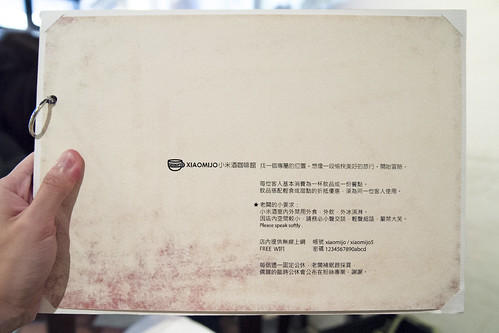
- This is a menu from a cafe that specifically requests, "Please speak softly." My friend and I didn't speak softly enough and were asked to be softer. ...I never returned because I was afraid I couldn't speak softly enough with friends. ;_;
I'm not saying all Taiwanese people speak at mouse-level, but my experience, as well as some of my classmates, is that we talk louder than most Taiwanese people. Sometimes far too loud. I gradually learned to speak more softly, but when riding the MRT or just walking around in public it was easy for me to forget that I'm this HORRIBLE, SCREECHING AMERICAN, and then I felt embarrassed by how loud I was. If you're naturally a loud person, start practicing your indoor voice.
Movie theaters have assigned seating.
So don't worry about hunting for seats. I quite like this system. I managed to avoid getting shitty seats.
There's a 24-hour bookstore.
Eslite (or 誠品, Chéngpǐn) is an upscale, Taiwanese, design-centric bookstore/department store chain with loads of locations around Taipei. I've never seen any other store quite like it. It's one of my most favorite stores ever. I usually go to the one in Xinyi, their largest location, but if you want a book at 4 a.m. you need to go to their location on Dunhua South Road, the famed 24-hour store. I can't say I ever get the hankering to buy a book at 4 a.m., but I like knowing that's a want Taipei allows me to indulge in.
"Chao fan" (fried rice) is slang for sex.
Not that you were planning to run around the streets of Taipei yelling, 「我很喜歡炒飯!」 ("I REALLY LIKE CHAO FAN!"), but, yeah, don't go around yelling that. If you want to share your love of chao fan, you have to say you like eating chao fan.
Familiarize yourself with more Chinese slang here.
Learn how to do tally marks the Taiwanese way.
This is how you do tally marks in Taiwan (and other parts of Asia), mostly used when filling out menu order forms (and probably other kinds of forms, but menus were the only order forms I used):

- Tally marks 3". Licensed under Public Domain via Wikimedia Commons.
It's the year 104.
It's also the year 2015, but sometimes you'll see dates written like 104.MM.DD because it's using the Mingua calendar, which counts the years following the founding of the Republic of China. So take that, Baby Jesus.
I think I'm done now?
I could keep going, but this post has to end at some point. If you have more to add or something to correct, please let me know!
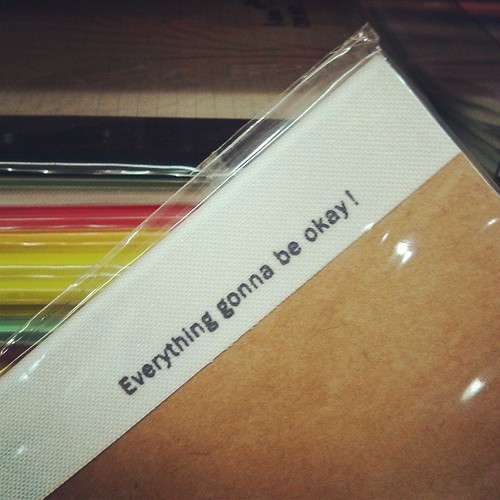
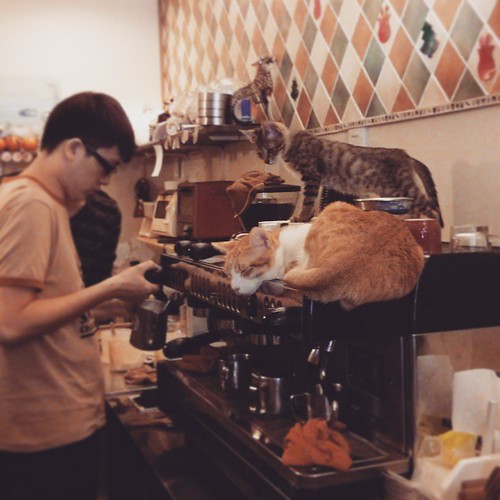
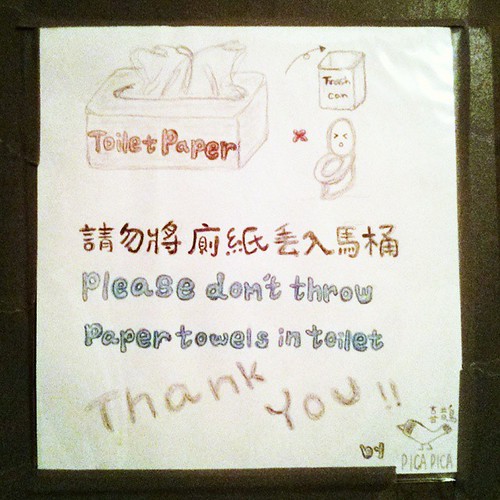
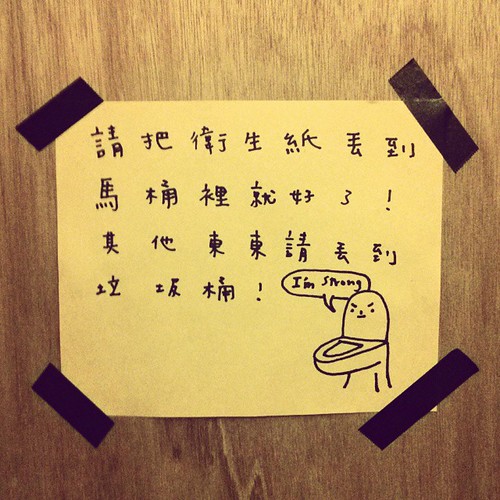


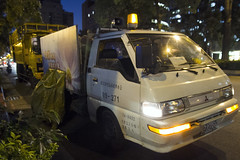
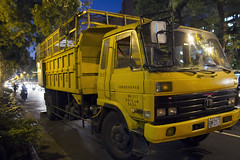
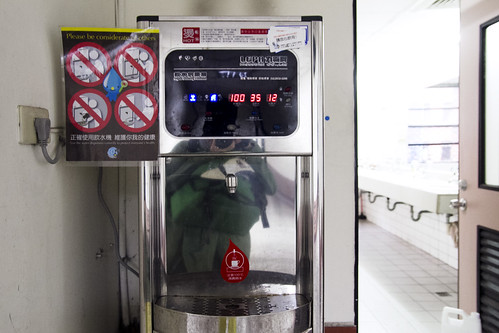

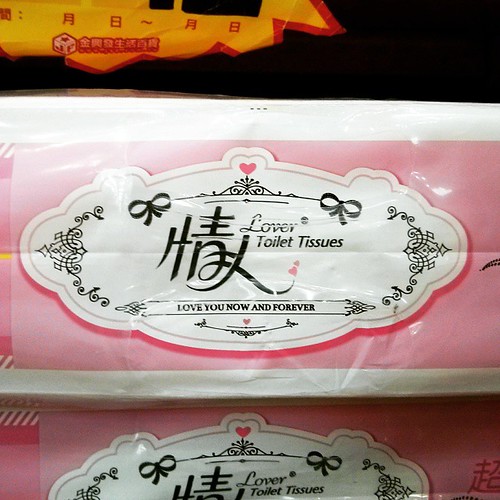
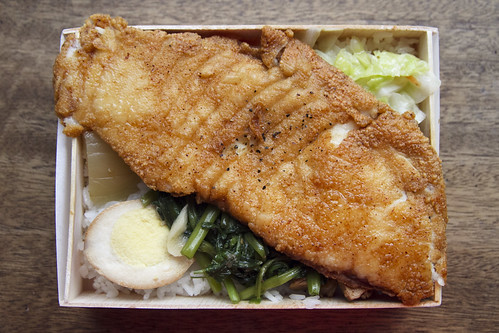
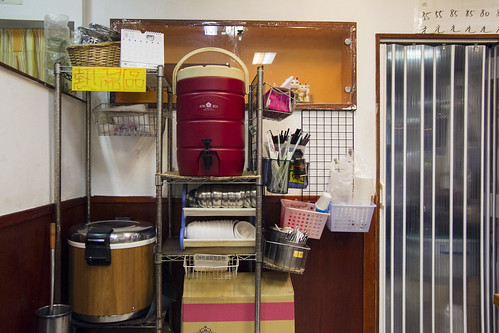
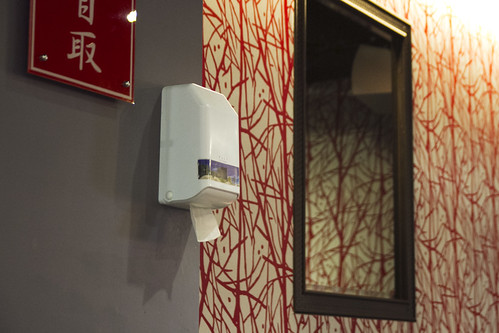
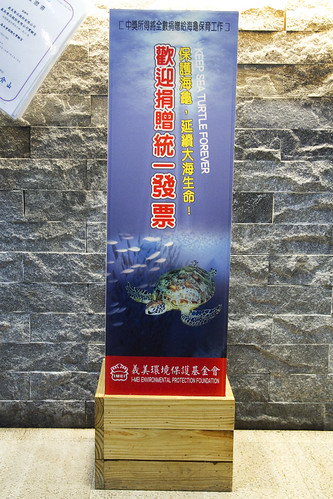
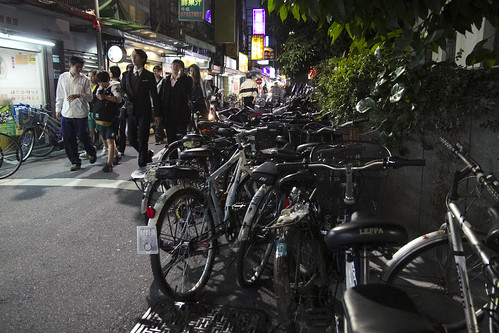
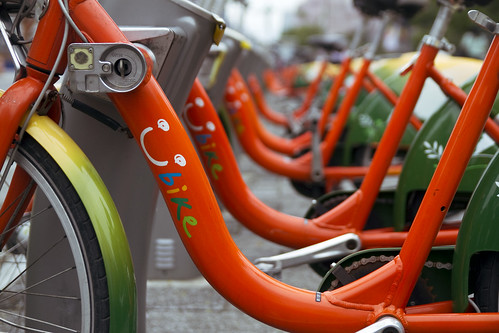
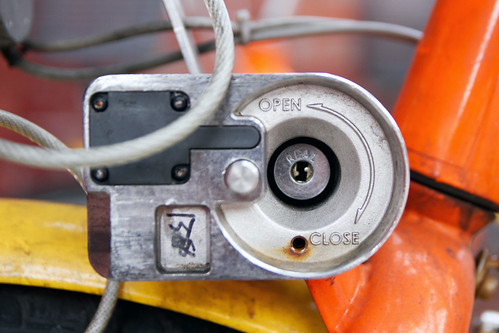
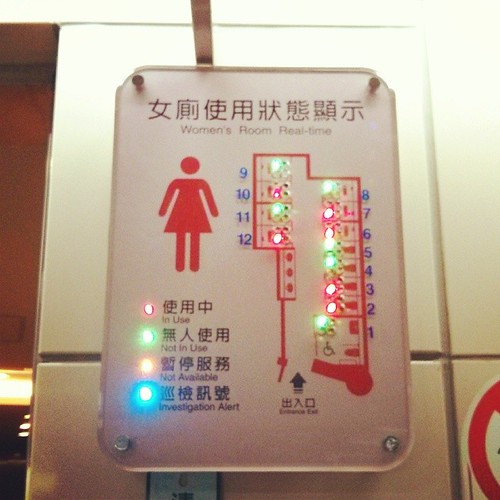
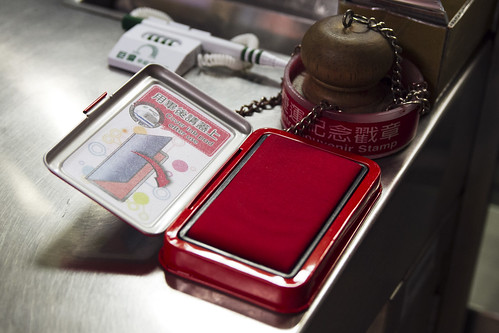
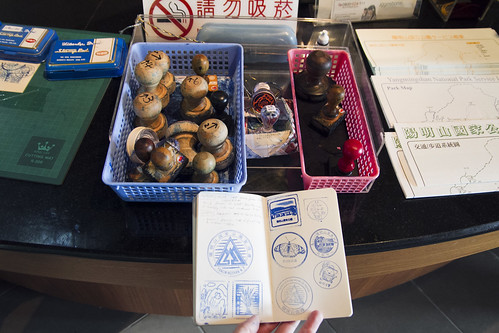
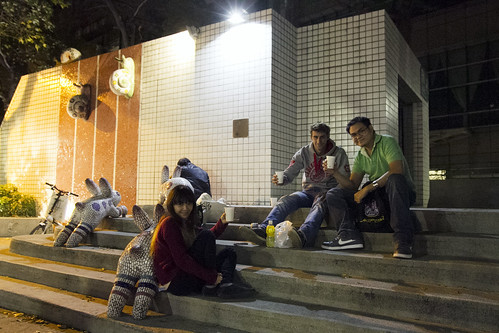
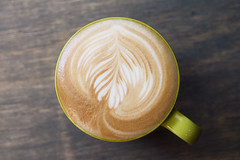
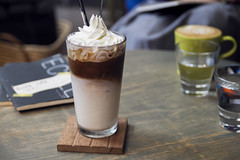
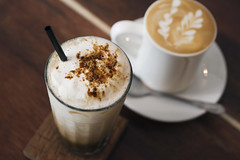

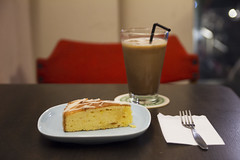
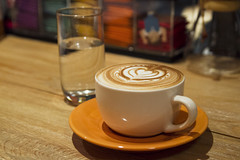
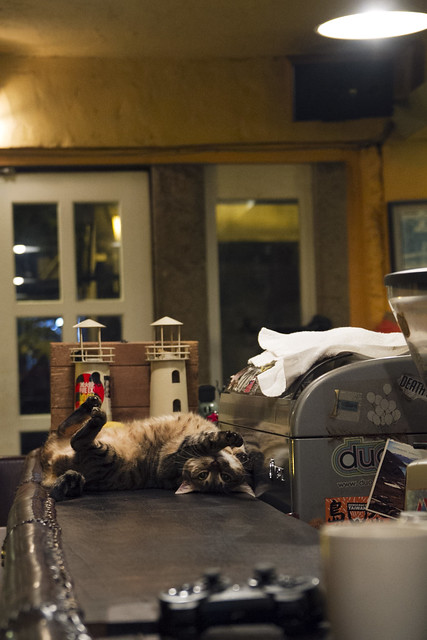
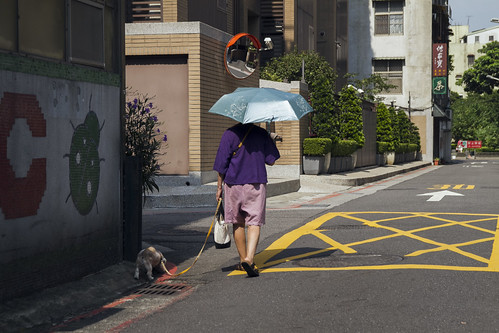
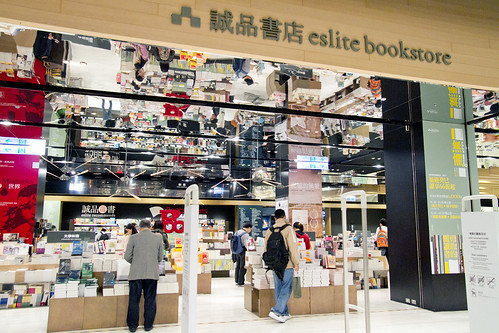
Comments